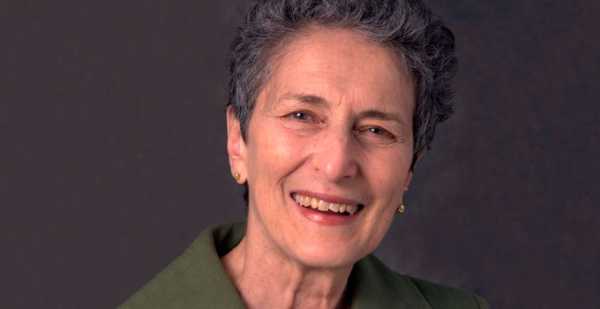CLIO Talks Back

Karen Offen
United States
Archive
- Jun 2011
- May 2011
- Apr 2011
- Mar 2011
- Feb 2011
- Jan 2011
- Dec 2010
- Nov 2010
- Oct 2010
- Sep 2010
- May 2010
- Apr 2010
- Mar 2010
- Feb 2010
- Jan 2010
- Nov 2009
- Oct 2009
- Aug 2009
- Jul 2009
- Jun 2009
- May 2009
- Apr 2009
- Mar 2009
- Feb 2009
- Jan 2009
- Dec 2008
- Nov 2008
- Oct 2008
- Sep 2008
- Aug 2008
- Jul 2008
- Jun 2008
- May 2008
- Apr 2008
I.M.O.W.'s debut blog, Clio Talks Back, will change the way you think about women throughout history! Be informed and transformed by Clio Talks Back, written by the museum's resident historian Karen Offen.
Inspired by Clio, the Greek muse of History, and the museum's global online exhibitions Economica and Women, Power and Politics, Karen takes readers on a journey through time and place where women have shaped and changed our world. You will build your repertoire of rare trivia and conversation starters and occasionally hear from guest bloggers including everyone from leading historians in the field to the historical women themselves.
Read the entries, post a comment, and be inspired to create your own legacies to transform our world.
Why Women's History?
2010-03-22 13:34:46.000
Here are some of Clio's favorite quotations about the importance of women's history. This topic was already discussed and debated in the nineteenth century in Europe. Since then historians in every country in the world (mostly but not all women) have made enormous progress digging out women's pasts.
The first quotation is from Jane Austen, in her novel Northanger Abbey(1803):
??History, real solemn history, I cannot be interested in. Can you??
?Yes, I am fond of history.?
?I wish I were too. I read it a little as a duty, but it tells me nothing that does not either vex or weary me. The quarrels of popes and kings, with wars or pestilences, in every page; the men all so good for nothing, and hardly any women at all ? it is very tiresome.?
----------------------------------
The second, published the same year, comes from the vicomte de Ségur, Women: Their Condition and Influence in Society(1803):
?The proper study of mankind includes the study of both sexes.? But, he added: ?we must write their [women?s] history.?
----------------------------------
A third celebrated observations comes from Charles Fourier, Théorie de Quatre Mouvements(1808); this thought had been developed by Scottish historians and missionaries during the later eighteenth century, but Fourier's rendition made it famous:
?Social progress and historic changes occur by virtue of the progress of women toward liberty, and decadence of the social order occurs as the result of a decrease in the liberty of women.? ? ?The extension of women?s privileges is the general principle for all social progress.?
-----------------------------------
The fourth quotation is from a Belgian feminist, Zoe Gatti de Gamond, who signed as Marie de G***, Revue Encyclopédique (December 1832). She called for a REAL history of women and better education for women. She wanted an historical resume of the condition of women in past centuries ?which would serve to demonstrate the gradual improvement that has taken place in their condition: the study of the improvements realized in the past would allow conjecture on the improvements to come;? and finally ?a clear picture of the present condition of women, on which one could indicate the successive improvements that the partial efforts of men could achieve, within the framework of the general views of Providence.?
----------------------------------
A fifth author, Henriette Wild, known as "Henriette, artiste," published her observations in La Voix des Femmes during the 1848 revolution in Paris:
?Like man, woman is called to explore the domain of history. As in all other things, there is room for both [sexes] and both also have differing and specific attributes. The best will in the world is insufficient to advance certain works, and in those places where observation is divided in a fundamental yet imperceptible manner, how could it be given to a single observer to follow simultaneously two lines that are incessantly diverging from one another? This is why, for woman, history is a lie and why the truth will only appear once feminine observation and intelligence enter into it and, specifically, link it to women?s interests.?
And, she added:
?What! such things have happened and no women were taught about them, and they were not engraved in the memories of every young girl? Women, women! And you are astonished at your own fall and your abjection. And you ignore the means of your own regeneration.?
---------------------------------
Our sixth witness is Jenny P. d?Héricourt, who published these lines in her book, A Woman?s Philosophy of Woman (1860, 1864 in English). Jenny was very clear about the fact that there was a sexual politics that affected all knowledge, including historical knowledge:
?Hitherto institutions, laws, sciences, philosophy [and history] have chiefly borne the masculine imprint; all of these things are only half human; in order that they may become wholly so, woman must be associated in them ostensibly and lawfully.?
Clio applauds the insights of these women and men, who knew already centuries ago that women's history was the missing element in our understanding of the past.
Historian Natalie Zemon Davis wins Holberg Prize for 2010
2010-03-16 09:14:42.000
In celebration of Women's History Month, Clio is thrilled to announce that her distinguished colleague Natalie Zemon Davis has won the Holberg Prize for 2010 - the press release is posted below.
Natalie Davis has championed women's & gender history since the beginning of her stellar career.
Press Release 16 March 2010
Natalie Zemon Davis, Professor at University of Toronto, is awarded Holberg Prize 2010.
The Holberg Prize is worth 785.000 USD/530.000 Euro and will be awarded 9. June in Bergen in Norway.
Excerpts from the citation of the Holberg Prize Academic Committee:
?Natalie Zemon Davis is one of the most creative historians writing today, an intellectual who is not hostage to any particular school of thought or politics. Her writing is richly textured, multi-faceted and meticulously documented. She shows how particular events can be narrated and analyzed so as to reveal deeper historical tendencies and underlying patterns of thought and action. Her work brings gender to the fore, while insisting that the relationship between men and women is always embedded in the cultural discourses and social organizations specific to their time.?
?Davis? imaginative approach to history, coupled with intensive archival research, makes the past come alive; her fundamental method is to pursue a dialogue between the past and the present. The uniqueness of her work lies in connecting early modern Europe with new areas of comparative history, exploring cultural, geographical and religious interchange.? (?)
?Her current work examines slavery in Suriname through the lens of generational encounters and crossings between slave and free, black and white, and people of different religions.?
?Natalie Zemon Davis?s contribution has provided many opportunities for innovative cross-fertilization between disciplines. She writes beautifully and knows how to tell a story, while at the same time remaining scrupulous in handling her empirical sources. The creativity and fearlessness of her work have inspired many younger historians, encouraging them to follow their own curiosity. As she herself has said: ?I want to be an historian of hope who makes people aware of possibilities in the future?.?
Short biography:
Davis is adjunct professor of history and professor of Medieval studies at U of T, and the Henry Charles Lea Professor of History Emerita at Princeton University. Born and raised in Detroit, Michigan, she graduated from Smith College and then received her master?s degree at Radcliffe College in 1950. She received her doctorate from the University of Michigan in 1959 and has since been awarded many honorary degrees. Her teaching career has taken her to Brown University, the University of Toronto, the University of California at Berkeley, and Princeton University. Professor Davis was also president of the American Historical Association in 1987, the second woman to hold the position.
The Holberg Prize, which was established by the Norwegian Parliament in 2003, is awarded annually by the Board of the Ludvig Holberg Memorial Fund. Holberg Prize is for outstanding scholarly work in the academic fields of the arts and humanities, social sciences, law and theology. Holberg Prize Laureates: Ian Hacking (2009), Fredric R. Jameson (2008), Ronald Dworkin (2007), Shmuel N. Eisenstadt (2006), Jürgen Habermas (2005), Julia Kristeva (2004).
For more information and to download photos of the prize winner: www.holbergprisen.no


